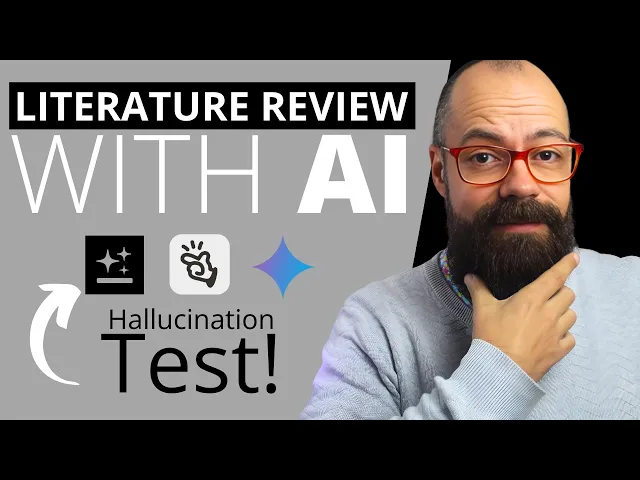I Tested 3 Literature Review AIs – Only One Didn’t Lie to Me

AI literature review tools face truth test
In the rapidly evolving landscape of AI research tools, separating genuine innovation from potentially dangerous shortcuts has become increasingly challenging. A recent investigation into three leading AI-powered literature review assistants—Consensus, Elicit, and Scite.AI—reveals concerning disparities in accuracy and reliability. This eye-opening comparison exposes how some AI tools may be misleading researchers and academic professionals with fabricated or misrepresented citations, while others offer promising solutions for legitimate scholarly work.
Key findings from the comparison:
- Consensus demonstrated high reliability, providing verifiable quotes directly from source papers and accurate citations without fabricating information
- Elicit exhibited troubling behavior, including "hallucinating" citations that don't exist and making claims not supported by the source material
- Scite.AI showed mixed results, occasionally referencing papers that weren't actually in their database while providing some useful citation context
The accuracy problem isn't just academic
The most striking revelation from this analysis is the wide gap in factual reliability between these tools. While Consensus consistently delivered verifiable information with links to the original research papers, Elicit often fabricated evidence—a critical flaw that undermines the entire purpose of literature review tools.
This discrepancy matters tremendously in today's information ecosystem. As researchers, students, and professionals increasingly rely on AI tools to navigate overwhelming volumes of academic literature, the risks of propagating false information grow exponentially. Imagine a medical researcher using hallucinated research citations to support clinical recommendations, or policy decisions being made based on non-existent studies. The potential harm extends far beyond academic integrity into real-world consequences.
Beyond the video: The broader implications for research integrity
The findings from this comparison connect to larger challenges facing academia and knowledge work. Even before AI entered the picture, academic publishing faced a replication crisis, with numerous studies showing that significant percentages of published research couldn't be reproduced. AI-powered literature review tools that hallucinate or fabricate citations compound this problem dramatically.
Consider the case of a 2022 Nature survey that found 38% of researchers had trouble reproducing even their own experimental results. When we layer potentially unreliable AI tools onto this existing fragility in research methodology, we risk creating a house of cards where citations point to fabricated claims that reference other fabricated claims
Recent Videos
How To Earn MONEY With Images (No Bullsh*t)
Smart earnings from your image collection In today's digital economy, passive income streams have become increasingly accessible to creators with various skill sets. A recent YouTube video cuts through the hype to explore legitimate ways photographers, designers, and even casual smartphone users can monetize their image collections. The strategies outlined don't rely on unrealistic promises or complicated schemes—instead, they focus on established marketplaces with proven revenue potential for image creators. Key Points Stock photography platforms like Shutterstock, Adobe Stock, and Getty Images remain viable income sources when you understand their specific requirements and optimize your submissions accordingly. Specialized marketplaces focusing...
Oct 3, 2025New SHAPE SHIFTING AI Robot Is Freaking People Out
Liquid robots will change everything In the quiet labs of Carnegie Mellon University, scientists have created something that feels plucked from science fiction—a magnetic slime robot that can transform between liquid and solid states, slipping through tight spaces before reassembling on the other side. This technology, showcased in a recent YouTube video, represents a significant leap beyond traditional robotics into a realm where machines mimic not just animal movements, but their fundamental physical properties. While the internet might be buzzing with dystopian concerns about "shape-shifting terminators," the reality offers far more promising applications that could revolutionize medicine, rescue operations, and...
Oct 3, 2025How To Do Homeless AI Tiktok Trend (Tiktok Homeless AI Tutorial)
AI homeless trend raises ethical concerns In an era where social media trends evolve faster than we can comprehend them, TikTok's "homeless AI" trend has sparked both creative engagement and serious ethical questions. The trend, which involves using AI to transform ordinary photos into images depicting homelessness, has rapidly gained traction across the platform, with creators eagerly jumping on board to showcase their digital transformations. While the technical process is relatively straightforward, the implications of digitally "becoming homeless" for entertainment deserve careful consideration. The video tutorial provides a step-by-step guide on creating these AI-generated images, explaining how users can transform...
